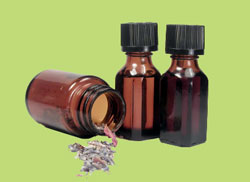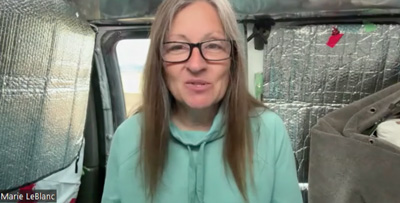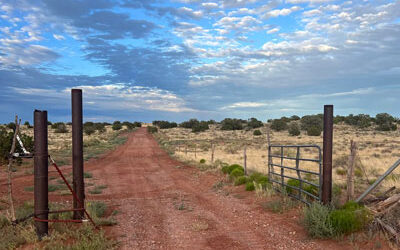getting to the root of an Earth poet


 Stephen: Although I had been working with plants in many forms since 1972 my interest in medicinal herbs occurred through serendipity, as these things often do. In 1986 I became ill with a rather severe intestinal cramping, a cross between kidney stones and appendicitis in pain levels. Physicians were no help and wanted to do exploratory surgery. Coincidentally a local herbalist had just visited our land and mentioned that one of the plants there, osha, was good for intestinal cramping. I took it and, over time, the cramping eased, ceased. Needless to say, it changed my life.
Stephen: Although I had been working with plants in many forms since 1972 my interest in medicinal herbs occurred through serendipity, as these things often do. In 1986 I became ill with a rather severe intestinal cramping, a cross between kidney stones and appendicitis in pain levels. Physicians were no help and wanted to do exploratory surgery. Coincidentally a local herbalist had just visited our land and mentioned that one of the plants there, osha, was good for intestinal cramping. I took it and, over time, the cramping eased, ceased. Needless to say, it changed my life.

 Stephen: I don’t have lyme but over the past decade one of the primary questions I have been asked when I teach is do I know anything about treating lyme. The idea percolated for a long time. There seemed such need and the lack of a definitive text was troubling to me. Further, most treatment of lyme seemed more in the form of “well, let’s try this and see what happens” rather than treatment that was grounded in deep understanding of the disease.
Stephen: I don’t have lyme but over the past decade one of the primary questions I have been asked when I teach is do I know anything about treating lyme. The idea percolated for a long time. There seemed such need and the lack of a definitive text was troubling to me. Further, most treatment of lyme seemed more in the form of “well, let’s try this and see what happens” rather than treatment that was grounded in deep understanding of the disease.
For instance, no one I knew of was even remotely aware that the reason that lyme produced so many different kinds of symptoms was because of damage to collagen structures in the body. Where the damage occurred was what created the symptoms. Symptom treatment, while sometimes important, never gets to the root of things. Finally, Wendy Leffel, the M.D. who wrote the introduction, urged me to write the book. All this together is what drove my interest and finally the decision to do the book.


 Stephen: It took me a year to seem well again, three years until I could reliably trust my energy levels. I have not had a relapse in many years and no one would think me ill from either of those diseases. The primary difference between now and before experiencing a debilitating chronic disease is that I am acutely aware of my state of energy and health at all times and constantly monitor it to make sure I don’t push myself too far before taking out time for rest and recuperation. I pay attention to my needs now and not to what the society says I should be doing in terms of output. Something that many lyme patients also have learned the hard way. I only used herbs for my healing. I trust them completely with my life.
Stephen: It took me a year to seem well again, three years until I could reliably trust my energy levels. I have not had a relapse in many years and no one would think me ill from either of those diseases. The primary difference between now and before experiencing a debilitating chronic disease is that I am acutely aware of my state of energy and health at all times and constantly monitor it to make sure I don’t push myself too far before taking out time for rest and recuperation. I pay attention to my needs now and not to what the society says I should be doing in terms of output. Something that many lyme patients also have learned the hard way. I only used herbs for my healing. I trust them completely with my life.

 Stephen: Food facism has always bothered me and I am pretty open to food and what to eat at any particular time. I suppose it comes down to trusting the body. It has taken me a long time to become friends with my body, to become trustworthy to it, for me to learn to trust what it is telling me.
Stephen: Food facism has always bothered me and I am pretty open to food and what to eat at any particular time. I suppose it comes down to trusting the body. It has taken me a long time to become friends with my body, to become trustworthy to it, for me to learn to trust what it is telling me.
To apply this to food: there was an interesting study that followed two groups of children for quite a long time. Similar groups: one got to eat anything they wanted at any time, the other ate three balanced meals a day. It turned out that the first group was healthiest and more, they suffered very few eating disorders later in life. The second group suffered many.
The urge toward certain kinds of foods at certain times is something our body wisdom naturally offers us, this more than anything else is what I follow in my diet choices. Occasionally, I fast when I feel the need particularly strongly. I may eat hamburgers for a week, then salads for a week, then mexican food, or cajun. Some years I eat ice cream, some years not. I may cook or eat out. I tend to graze throughout the day, eating from 3-8 times, smaller meals and snacks.

 Stephen: Besides what I already noted above, which does make a tremendous difference, I spend a lot of time talking to my body and my interior selves, making sure that everyone is happy and not missing out on any needs. I spend time in the woods when I can, sometimes a lot of time, usually visiting with plants. And I tend to buy houses that need remodeling, so work with my body intensely from time to time. I miss that kind of hard work when I go too long without it. I also get regular massages.
Stephen: Besides what I already noted above, which does make a tremendous difference, I spend a lot of time talking to my body and my interior selves, making sure that everyone is happy and not missing out on any needs. I spend time in the woods when I can, sometimes a lot of time, usually visiting with plants. And I tend to buy houses that need remodeling, so work with my body intensely from time to time. I miss that kind of hard work when I go too long without it. I also get regular massages.

 Stephen: I have had some good personal success with homeopathy, however I have not trained in it nor do I use it in practice. Just for myself from time to time.
Stephen: I have had some good personal success with homeopathy, however I have not trained in it nor do I use it in practice. Just for myself from time to time.

 Stephen: Years ago I finally realized that there is no such thing as safety. The problem, I realized, was in me—not in the negative energies I encountered from time to time. So, I began to learn how to deal in my interior world with the negative things I encountered. Basically what it came down to was that I was afraid when I encountered certain things and did not know how to take care of myself. So, I began to sit in meditation with the part of myself that wanted to be protected, that was afraid, that found dealing with scary things hard. I tried it the other way, of course. Protecting myself energetically, using approaches that a lot of people use. Ultimately, I found it useless. For the problem was that deep inside I was terrified. So I worked with the terrified part and came to accept that there is no such thing as safety. Life isn’t safe. We are all, after all, biodegradable and biodegrade we will. Some part of ourselves knows that and knows how to deal with it. It is a situation of long evolutionary duration that all organisms face.
Stephen: Years ago I finally realized that there is no such thing as safety. The problem, I realized, was in me—not in the negative energies I encountered from time to time. So, I began to learn how to deal in my interior world with the negative things I encountered. Basically what it came down to was that I was afraid when I encountered certain things and did not know how to take care of myself. So, I began to sit in meditation with the part of myself that wanted to be protected, that was afraid, that found dealing with scary things hard. I tried it the other way, of course. Protecting myself energetically, using approaches that a lot of people use. Ultimately, I found it useless. For the problem was that deep inside I was terrified. So I worked with the terrified part and came to accept that there is no such thing as safety. Life isn’t safe. We are all, after all, biodegradable and biodegrade we will. Some part of ourselves knows that and knows how to deal with it. It is a situation of long evolutionary duration that all organisms face.
There is a serenity in not minding the pain, in no longer being afraid of suffering, of no longer abandoning the self. So, I just nurture myself, those deep parts of myself, and never abandon them. Then there is no need for protection.

The books I have read of yours are research-heavy and filled with facts that I had no idea were out there, because we never hear of them. For example, the intelligence of spirochetes that you detail in Healing Lyme, or the intelligence of plants you share in The Lost Language of Plants. The breadth and range of your studies is quite impressive. When preparing to write a book, how do you go about your research? How do you find the information—have you usually already read about it all or are you learning as you go?
 Stephen: I never have been happy in a box. Life is not a box (nor a box of cherries either). Life is some living thing that all of us are involved in. So, I dive in to whatever captures my attention. I immerse myself in it, learn to think through that field of knowledge. I have a sense of the book that is calling to me to be written. There is a feel to truth and I follow that feeling, what the poet William Stafford called the golden thread that all writers must follow for their work to be real. That thread, that feeling, leads to everything I study, often through processes that are not linear and that defy rational explanation. I just happen to stop to get gas at this gas station rather than that one and someone there just happens to drop a book in front of me that just happens to be related to what I am immersed in at that moment. I always know something about the topic I am going into but what I know and what is ultimately true are often different. I always learn as I go. Following golden threads is the most interesting kind of education I am aware of. There are no discipline boundaries with golden threads, interrelated data streams from diverse fields are the norm.
Stephen: I never have been happy in a box. Life is not a box (nor a box of cherries either). Life is some living thing that all of us are involved in. So, I dive in to whatever captures my attention. I immerse myself in it, learn to think through that field of knowledge. I have a sense of the book that is calling to me to be written. There is a feel to truth and I follow that feeling, what the poet William Stafford called the golden thread that all writers must follow for their work to be real. That thread, that feeling, leads to everything I study, often through processes that are not linear and that defy rational explanation. I just happen to stop to get gas at this gas station rather than that one and someone there just happens to drop a book in front of me that just happens to be related to what I am immersed in at that moment. I always know something about the topic I am going into but what I know and what is ultimately true are often different. I always learn as I go. Following golden threads is the most interesting kind of education I am aware of. There are no discipline boundaries with golden threads, interrelated data streams from diverse fields are the norm.


 Stephen: This ties into the question about protection. Suffering is in the world, has been in the world, will always be in the world. It is a fundamental truth of life on this planet. We have been raised in a culture that has accepted the absurdity that a life without suffering is possible. If someone does experience suffering, someone someplace must be to blame for it. Lawsuits galore. Pain happens, suffering happens, often through no fault of our own or anyone else. Everything biodegrades, and in that biodegrading there is pain, there is suffering. All living things grieve the moment that life is lost. I spent a year just allowing myself to feel the pain in ecosystems, the suffering in this world, until it was no longer devastating to me to feel it.
Stephen: This ties into the question about protection. Suffering is in the world, has been in the world, will always be in the world. It is a fundamental truth of life on this planet. We have been raised in a culture that has accepted the absurdity that a life without suffering is possible. If someone does experience suffering, someone someplace must be to blame for it. Lawsuits galore. Pain happens, suffering happens, often through no fault of our own or anyone else. Everything biodegrades, and in that biodegrading there is pain, there is suffering. All living things grieve the moment that life is lost. I spent a year just allowing myself to feel the pain in ecosystems, the suffering in this world, until it was no longer devastating to me to feel it.
There is another side to feeling the suffering of the world. Many older Christian mystics noted that there was a time in their practice when they encountered the suffering in the world; then that is the only thing that exists, one cries, often for a year. But, there is another side. Compassion lives there, the suffering is noticed. You feel it, you notice it, perhaps more than ever before. You just don’t mind it. I would never try and remove someone’s suffering without their permission for I am aware of how much mine has taught me. By coming to terms with the suffering in the world I can better see what purpose it serves. I wish our school systems would teach children of the inevitability of suffering so they could better respond to it when it happens to them. It just is, like the sun and the rain. And there is a part of us that knows how to deal with it.
Hopefulness comes from seeing how the intelligent ecosystem responds, e.g. the plants we need begin to grow in our yards. I have seen this a thousand times. I trust myself to Nature, without reservation, for I have seen the intelligence and caring that is there for all of us, continually. And so, I can do the work that I am here to do and let Nature deal with the big picture. All of us have an ecological function, when we understand what that is and accept the doing of it. Things get a lot easier. Hope is not optimism that things will turn out all right, that is, with little pain and lots of love and money (which is what most people mean by turning out all right). Hope is the living experience that things ultimately make sense. That there is meaning in the world, even in the most difficult and painful of life experiences.

 Stephen: Many: osha, pasque flower, usnea, motherwort and on and on.
Stephen: Many: osha, pasque flower, usnea, motherwort and on and on.

 Stephen: The Lost Language of Plants and Sacred Plant Medicine were both written under strong impetus from the plants. Especially Lost Language. Lost Language contains a great deal of what they asked me to say.
Stephen: The Lost Language of Plants and Sacred Plant Medicine were both written under strong impetus from the plants. Especially Lost Language. Lost Language contains a great deal of what they asked me to say.

 Stephen: There are many plants like this, so it could be many different ones. And many people have these kinds of images come to them, unexpected and unannounced. They are the touch of a golden thread; often they can be followed a long way to a great many interesting experiences. One of the best ways to find out which plant it is is to look at a lot of plant books that have color photographs, another is to keep going back to that image, over and over again, earnestly asking for more clarity. It may take some time, but eventually, always, the clarity comes.
Stephen: There are many plants like this, so it could be many different ones. And many people have these kinds of images come to them, unexpected and unannounced. They are the touch of a golden thread; often they can be followed a long way to a great many interesting experiences. One of the best ways to find out which plant it is is to look at a lot of plant books that have color photographs, another is to keep going back to that image, over and over again, earnestly asking for more clarity. It may take some time, but eventually, always, the clarity comes.
This is what I refer to as gathering knowledge directly from the heart of the world. It is what our ancient and indigenous ancestors all did once, as routinely as we now shop for groceries. It may be gravel root, or boneset, but more importantly it is some plant that is calling you to its medicine. As the poet Robert Aiken puts it:
- Seeing gardners label their plants
I vow to practice the old horticulture
and let plants
identify me.
This experience you are describing is a plant identifying you and is the core of what I call sacred plant medicine and what I discuss in detail in The Secret Teachings of Plants.

 Stephen: Morality comes from the inside out not from the top down. it comes from the impulses Nature herself places within us. The most effective thing to do politically is to follow that feeling within you, to find the ecological function that you were meant to fulfill, to speak it out, but more importantly to live it out. Anyone who feels that something should be done usually feels an area in which it should be done RIGHT NOW. Following that urging and doing what is before you is the most effective thing to do. Though, of course, it means trusting yourself, that deep part of you, and following that urging. Perhaps the hardest thing of all.
Stephen: Morality comes from the inside out not from the top down. it comes from the impulses Nature herself places within us. The most effective thing to do politically is to follow that feeling within you, to find the ecological function that you were meant to fulfill, to speak it out, but more importantly to live it out. Anyone who feels that something should be done usually feels an area in which it should be done RIGHT NOW. Following that urging and doing what is before you is the most effective thing to do. Though, of course, it means trusting yourself, that deep part of you, and following that urging. Perhaps the hardest thing of all.

 Stephen: Life is dangerous. Who has been spreading the rumor that it is not? More damage is done to our livers from breathing in gasoline fumes than any other source. It is unlikely that gas will be made illegal or that people will stop using it for some time to come.
Stephen: Life is dangerous. Who has been spreading the rumor that it is not? More damage is done to our livers from breathing in gasoline fumes than any other source. It is unlikely that gas will be made illegal or that people will stop using it for some time to come.
The man who starred in Il Postino was told he could make the film and die from his heart disease or he could not make the film and have heart surgery. He chose to make the film and die. People have the inalienable right to follow their lives to the meanings they seek. And they should. None of us are going to get out of this alive so why should we waste our time being safe only to regret it later on when we can do nothing about it? When it is too late.
Certain plant teachers are meant to open the doors of perception. Humans have always used them this way and always will, puritan impulses in our country notwithstanding.
And, it depends on just how compromised the liver function is.


 Stephen: Nettle.
Stephen: Nettle.

 Stephen: I have not decided about clients yet. For the next 18 months I will be teaching a great deal.
Stephen: I have not decided about clients yet. For the next 18 months I will be teaching a great deal.

 Stephen: There are three:
Stephen: There are three:
- Inhabiting the Word: On the Art of Nonfiction and the Writers Life;
- The Art of the Invisible;
- Healing Cancer
These should keep me busy for the next three or four years. The first two books are already contracted for.

 Stephen: Anyone who has felt the stirring of the elephant’s shoulders.
Stephen: Anyone who has felt the stirring of the elephant’s shoulders.

photos: Stephen Buhner ©Trishuwa | Eagle Feather ©Rebecca Pail / iStockphoto.com | Buhner Teaching ©Trishuwa | Herb Bottles ©Paige Foster / iStockphoto.com










What an amazing uplifting, insightful and deep interview. Thank you so much – I learned a lot and can relate in so many ways. God bless!